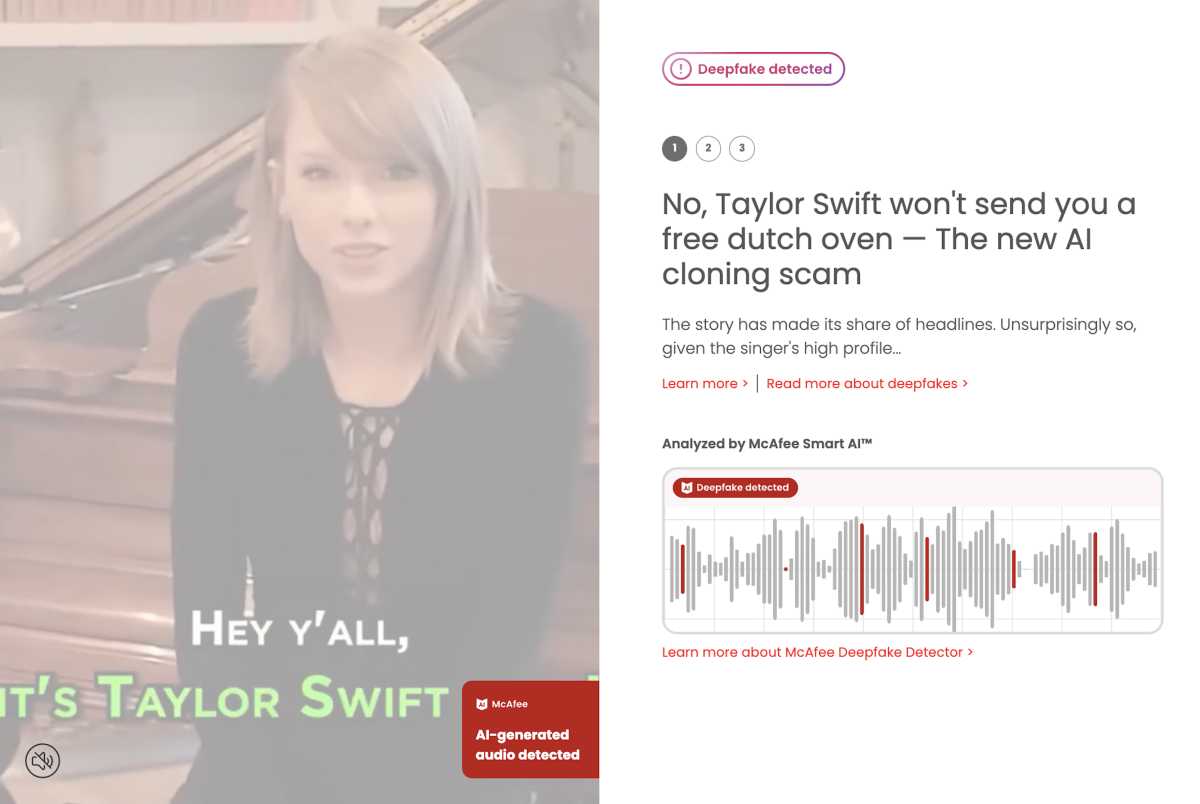AI’s rapidly expanding capabilities include convincing impersonations—that is, audio and video that sounds and looks like you. Sometimes these deepfakes can be harmless, part of a joke or meme that involves a celebrity, politician, or other public figure. But as you might guess, scammers also use them to steal money from the unsuspecting.
Most of the time, this style of scheme–often called a “grandparent scam”–catches people off-guard. Why? Because they don’t realize how easy and sophisticated this technology has become. For example, over two years ago, Microsoft’s VALL-E model was already able to mimic a specific voice based on audio samples just three seconds long. AI tech has continued to improve since then.
Additionally, few people expect to be targeted (or used as bait for their loved ones), as they assume they’re too ordinary. And not everyone remembers that phone numbers can be spoofed—that is, caller ID information can be faked to show a different number than the actual one making the call.
So currently, your friends and family might think twice if they receive a Facebook message from an account claiming to be you, stranded in a foreign country without access to your normal devices or your wallet. But if they get a phone or even video call where you’re pleading for help? They might race straight to the rescue, only to end up ensnared in a scam.
But you and your loved ones can avoid falling for this scam with a pretty low-tech solution: a safe word.
(No, not that kind.)

McAfee
That’s what cybersecurity software companies like Malwarebytes call a special phrase or word given to friends and family, to be used as a way to verify your identity during a phone or video call. Personally, I refer to these as verbal passwords, because if you try to look up the term “safe word” in a search engine, none of the top results discuss cybersecurity.
The idea is to pick a unique, even nonsensical word or phrase that no one could ever guess (i.e., avoid childhood cities, pet names, hobbies, favorite TV series or books, etc). That way, your family and/or friends will know whether to hang up or come help if they’re confronted with scenarios like:
- Accident scams: “You” have been in an accident and need immediate assistance.
- Bail scams: “You” claim to need help getting out of jail.
- Virtual kidnapping scams: “You” claim that you’ve been kidnapped, and your kidnappers have threatened to hurt you if a ransom isn’t paid.
Social media makes grabbing video and audio samples much easier these days, so don’t assume you or someone you know couldn’t be picked as bait. Even those who stay off social media sites can still be used as fodder for scams—can you guarantee that people you know haven’t taken video with you in it and posted it online?
On the flip side, if you are on social media and have shared a lot about yourself, consider going one step further. Make your family or friends not just ask for your random password, but for you (or “you”) to tell them something only the two of you know. With this strategy, you and your associates win regardless. Either the scammer gives up, or you share a laugh while major stuff is going down.
Inicia sesión para agregar comentarios
Otros mensajes en este grupo.

Intel is almost literally betting its future on its upcoming “Panther

If your PC won’t open Google Chrome, there may be a culprit: Microsof

Microsoft is adding a long overdue function to Windows 11’s popular S

Let’s say, as a thought experiment, that you’re a malware developer.

I appreciate that “budget” means different things to different people


I don’t use a Windows Copilot+ PC as a daily driver, though I have se
